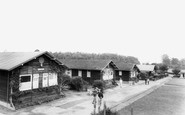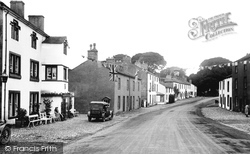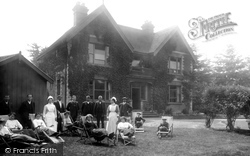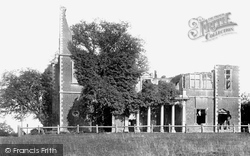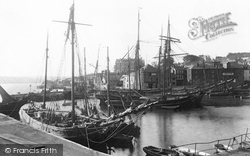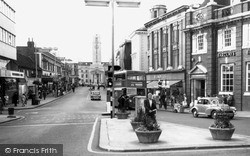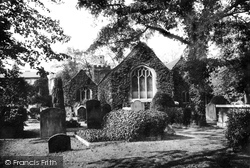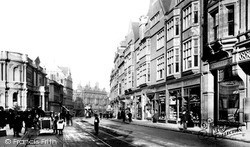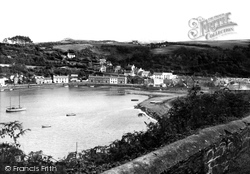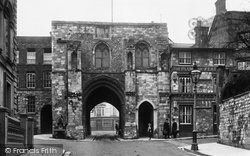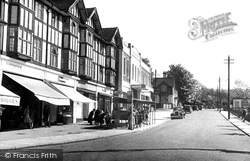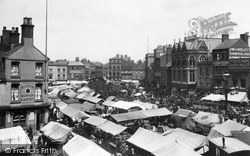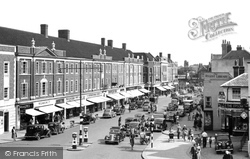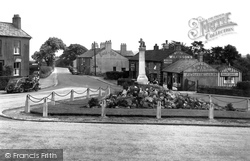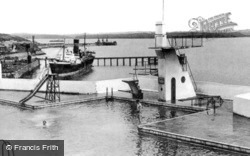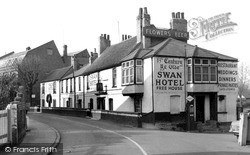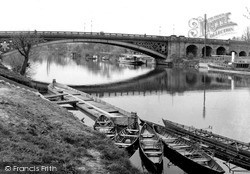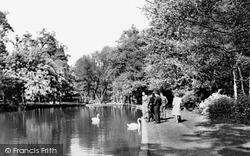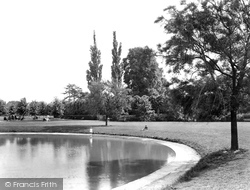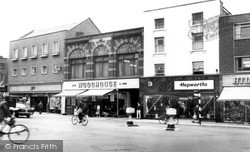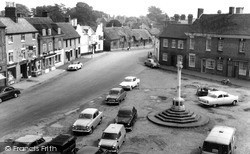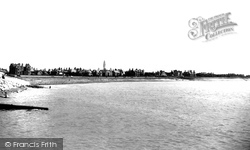Merry Christmas & Happy New Year!
Christmas Deliveries: If you placed an order on or before midday on Friday 19th December for Christmas delivery it was despatched before the Royal Mail or Parcel Force deadline and therefore should be received in time for Christmas. Orders placed after midday on Friday 19th December will be delivered in the New Year.
Please Note: Our offices and factory are now closed until Monday 5th January when we will be pleased to deal with any queries that have arisen during the holiday period.
During the holiday our Gift Cards may still be ordered for any last minute orders and will be sent automatically by email direct to your recipient - see here: Gift Cards
Places
4 places found.
Those places high-lighted have photos. All locations may have maps, books and memories.
Photos
2 photos found. Showing results 701 to 2.
Maps
65 maps found.
Books
Sorry, no books were found that related to your search.
Memories
4,591 memories found. Showing results 351 to 360.
6th Northwood Scouts Go Hostelling
I remember staying at the youth hostel in Greens Norton with the patrol leaders of the 6th Northwood Scout Group. I was an ASL (Assistant Scout Leader) with the troop for several years and as I had always ...Read more
A memory of Greens Norton in 1980 by
Trebanog
My grandparents, Henry and Ida Gladys Ward, came to Trebanog with their two daughters during the recession in the late 1920s to work in the mines. He had a brother, William, who worked as a butcher in Porth. I was hoping if someone remembers the time they spent there. Regards M Denney
A memory of Trebanog in 1920 by
The Keelings 1940 Evacuees
My sister, Joy, elder brother, Richard and myself, John Keeling, were evacuated to Llanharan in June 1940. After a short time Richard and myself were placed with a lovely old lady at 12 Seymour Avenue, Mrs Surridge. I do ...Read more
A memory of Llanharan in 1940 by
Newcastle University
I attended the University from 1970 - 1973 studying Surveying and Mathematics with Messrs Carmody and Newton. I lived in Havelock Hall for two years, and was involved with the JRC committee that ran the social side of ...Read more
A memory of Newcastle upon Tyne in 1970 by
Ratfyn Power Station
In the 1950s I was in the Royal Engineers and came over from Germany to our school of military engineering at Chatham where we did a course in electrical power stations. We were then posted to Bulford barracks, and did our ...Read more
A memory of Bulford in 1954 by
Dunsmore People And Happenings Remembered
PREFACE TO THE SECOND EDITION In 1995, when the first edition of this history was published, it seemed incredibly optimistic to have had three hundred copies printed for a market which was ...Read more
A memory of Dunsmore by
Chickenley Hall
Hello. My father lived at Chickenley Hall in the 1940s as he was adopted and brought to the home by the Armitage family. He eventually came to Scarborough, North Yorkshire and has started to write his memoirs which are still in ...Read more
A memory of Chickenley in 1940 by
Memories Of My Childhood
I was born in 1956, in Wiltshire, but my first memories are of Pawlett, where we moved, when I was very small. It was a smaller, quiter village than it is even now. I went to the village school, on the village green, next to ...Read more
A memory of Pawlett in 1961 by
The Old Mill Coytrahen
My memories of Coytrahen go back to the 1930s and 1940s. I was born in 1931 at The Old Mill, home of my Grandparents and spent many summers visiting there. The Old Mill was rather off the beaten track ,getting there from ...Read more
A memory of Coytrahen Ho in 1930 by
Dukeshouse Wood Camp School (Part Two)
My recollection of a dance that was arranged in the sports hall made me and another lad George Bishop decide to abstain from the proceedings as I think at the time, in fact I am sure about myself that I was very ...Read more
A memory of Hexham in 1940 by
Captions
913 captions found. Showing results 841 to 864.
The name of the village had an 'e' on the end until the railway company put up their sign spelt 'Gisburn', and the 'e' was forgotten.
The rigorous approach does not appear to have been particularly successful; many of those who came here now lie buried in graves at St John's cemetery in the village.
Soon after their birth they had been moved to St Neots, first to their doctor's house, The Shrubbery, in Church Street, and later to a large house, The Gables, in New Street, where people came
It came into the possession of the Dukes of Bedford in 1738, and in 1794 the then Duke removed the roof and most of the fittings. The reason is not recorded.
Many of the vessels employed in the beach trade were old when they came to it, costing their new owners between £200 and £500.
Family legend has it that grandfather came home with two left boots from the looting that followed the riot.
By the 1750s his fame had grown, and his celebrity status attracted visitors.
A further boost came in 1792 with the opening of a link between the Dudley and Birmingham Canals. The major industrial development at Brierley Hill was building the Earl of Dudley’s
The impressive harbour with its fine breakwater was constructed in 1906, in an effort to entice the great sea-going ships away from Liverpool and Southampton, but this idea came to nothing.
Apsley Mills came under the technical control of the Ministry of Munitions and Nash Mills made mortar bombs and small shells.
In the summer of 2005 the harbour was alive with ships as they came to commemorate the 200th anniversary of the Battle of Trafalgar and the death of Nelson.
He came to Haywards Heath in 1920, and established his practice at Boltro Chambers - this was just a stone's throw from the railway station.
Her 230,000-strong force was expected to win another glorious victory - wives and children came along to celebrate.
James Ainsworth was a master mariner like his father before him, and James Wright came here to work for the Great Northern Railway which itself expanded to meet the needs of the dock.
New town planners distrusted the earlier, casual dispersal of houses and manufacturers along the same street, deciding that in future there would be zoning, with different areas of the town set
Hundreds of locals came to see it, and 'tarmacadam' became a huge success.
Milford then turned to oil again, but this time a different kind of oil, and four oil refineries came into production from the 1950s, making Milford the second largest oil refining port in Europe in the
After Willand & Robinson moved to Rugby in 1911, Auto Carriers (makers of the AC cars of later fame) occupied the buildings.
Wood Green Farm still cultivates acres of pasture on the north bank of the Severn as far as Burlish Top, but changes came about after World War II.
Elizabeth I came to the throne in 1558. Her stays in Enfield were in 1564, 1568, 1572 and 1587.
In the summer the first protest came from a house next door, because young nurses were sitting on an adjoining bench with babies who cried.
In the 1920s the future looked very bright for Loughborough, but the Depression of the 1930s came as a cruel blow to the town.
Situated away from major routes, the town has derived its fame from the Battle of 1485, when Henry Tudor, later Henry VII, defeated Richard III on Ambion Hill to its south.
The name Granny's Bay came later, and Commonside fishermen used Granny's Dock.
Places (4)
Photos (2)
Memories (4591)
Books (0)
Maps (65)

